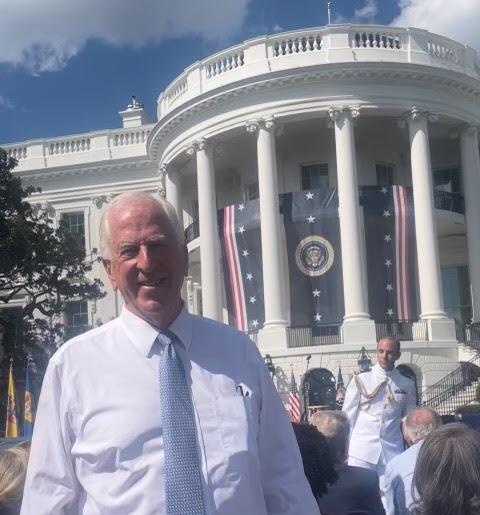Press Release
Posted:
Washington – Today, Rep. Mike Thompson (CA-05) attended a ceremony at the White House celebrating the Inflation Reduction Act, a historic package designed to lower costs for families and take the most significant climate action our country has ever seen. The bill was signed into law on August 16, 2022 by President Biden.

|
“The Inflation Reduction Act is a transformative law that is going to set our nation on the road to a bright future with historic climate action and lower costs for families,” said Thompson. “I am honored to attend the ceremony at the White House to celebrate this law, which includes my GREEN Act, the foundation of the climate provisions of the Inflation Reduction Act which represents the largest climate action in the history of our nation. This law will lower costs for families by allowing Medicare to negotiate prescription drugs, lower energy bills by speeding the transition away from expensive and dirty fossil fuels, and ensuring lower health care premiums. This is a historic moment, and this law is going to provide a secure future for future generations.” The Inflation Reduction Act addresses several key issues that American families face today, including health care costs, inflation, and climate change. Congressman Thompson, Chair of the Select Revenues Subcommittee of the Ways and Means Committee, was responsible for a majority of the climate provisions in the law — $250 billion worth —which are based on his GREEN Act. These investments include:
This bill will save the average American household hundreds in energy bills and other costs, will spur 9 million jobs by investing in clean energy, energy efficiency, and clean manufacturing, and will generate enormous public health benefits by preventing up to 3,900 premature deaths and 100,000 asthma attacks annually from air pollution. The Inflation Reduction Act is historic legislation that will also lower families’ health care costs. The bill:
According to 126 leading economists—including seven Nobel Prize winners, three former chairs of the Council of Economic Advisers, two former Treasury Secretaries—the Inflation Reduction Act “will fight inflation and lower costs for American families while setting the stage for strong, stable, and broadly-shared long-term economic growth.” This historic legislation is fully paid for:
The law passed the Senate on August 7, 2022 by a vote of 50-50 with Vice President Kamala Harris serving as the tiebreaking vote. |
